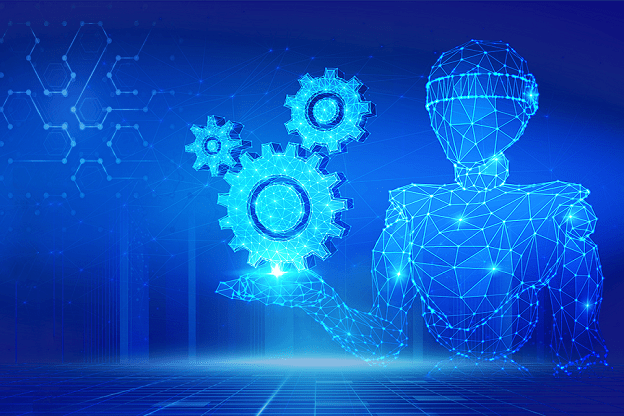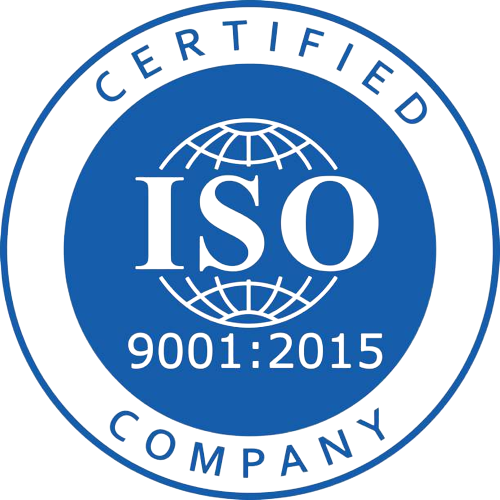We live in an era where technologies are constantly evolving & influencing the industrial sectors and enterprises. With the rapid technological advancements, enterprises are witnessing a rise in automation and robotics as industries have started adopting Artificial Intelligence and IoT-based sensors in their work ecosystem. Among all the greatest nations that are technologically mature, the UK is one of them.
As per the 2022 report, the UK is the 9th largest manufacturing nation globally, producing a substantial £183 billion worth of output. Due to unstable decision-making capabilities in the past, the UK continues its slow adoption of industrial automation. Again, exacerbated by Covid-19 & Brexit, the UK faced a surprising decline in manufacturing & industrial productivity. Therefore, the nation must accelerate its manufacturing and enterprise growth by adopting automation, robotics, and faster computation through quantum computing. Let’s delve into the various technologies the country can adopt for automation & improve the uptake of these emerging technologies to shape the future.
Emerging and Transformative Technologies to Adopt
Emerging and transformative technologies are an array of technologies that are witnessing rapid advancement. These technologies help fundamentally change the way industries operate and interact with the world around us. Since emerging technologies have the potential to drive innovations and disrupt industries, various nations are opting to make changes across different industries & manufacturing sectors. Some well-known emerging and transformative technologies are robotics, Process Automation, Digital Labour, Internet of Things (IoT), drones, and autonomous vehicles
Emerging & Disruptive Technologies that the UK Government and Private Sectors Can Leverage
Emerging technologies hold the power to shape the future of any nation – the UK is no different. Through transformative technologies like robotics, work automation, and Artificial Intelligence (AI), the UK government can derive societal progress & boost economic growth. Here are some technological areas that are disruptive and transformative.
1. Process automation:
By automating various monotonous tasks across the manufacturing industries, enterprises can streamline repetitive & time-consuming work. By reducing manual labor, enterprises can utilize human power for other productive and decision-making jobs. Manufacturing units can also automate myriad operations such as component assembling, work monitoring, supply chain, inventory, etc. Enterprises and manufacturing sectors can also leverage programmable automation to control monotonous work by controlling machines using Programmable Logic Controllers (PLCs). Process automation helps increase work efficiency, improve quality through accuracy, enhance flexibility in work delivery, and accelerate time-to-market a product. According to Gitnux’s report, 50 percent of manufacturing tasks will be automated by 2025. Manufacturing plants utilizing industrial sensors and automation programs will get a 15 percent edge in production output.
2. Robotics & robot arms:
Various sectors and manufacturing industries require robot arms and robotics driven by AI algorithms to perform welding, packaging, machine tending, and assembling parts. Robotic hands can also mimic human-like actions to perform mechanical cutting, deburring, grinding, and polishing different materials. Enterprises can also utilize AI and ML algorithms to train robots to learn tasks and achieve them fast and with complete accuracy.
Various companies have started innovating robots by incorporating a built-in cloud to record & monitor tasks in real-time. While humans need time to perform diverse manual tasks, robots can do it in seconds. It reduces processing costs and increases work efficiency. Robots are considered the best partners in any manufacturing unit & are already working across various sectors globally. According to a research report, at 2,054, the number of new robot installations was down 7 percent year-on-year. It gives the UK an average manufacturing robot density of 111 robots for every 10,000 employees.
3. Internet of Things (IoT) & sensors:
Another transformative element that businesses can add to their manufacturing unit is the IoTs and sensors. Through the Internet of Things (IoTs), industries can connect almost anything to the Internet. It helps revolutionize the manufacturing industry by facilitating predictive maintenance, real-time monitoring, and process optimization. Thermal sensors can detect humans and mishaps, smoke & air toxicity sensors can detect the percentage of harmful substances released from industrial work, and proximity sensors can detect objects nearby and automate various manufacturing tasks. Motion, light, humidity, and other sensors also help manufacturing divisions across diverse sectors.
Remote monitoring, motion-based security checks, and alarm systems can empower stakeholders to oversee production processes from anywhere globally. The data taken by the sensors also help them in making data-driven decisions. According to 360 Research reports, in 2022, the global Industrial IoT market size was valued at 67106.62 million USD. It will reach 141772.96 million USD by 2028, marking a compound annual growth rate of 13.28% during 2022-2028.
4. Computational power & digital infrastructure:
Quantum computers and GPU-powered systems are also marking a leap forward to massive performance increases. Various manufacturing industries, such as healthcare, pharmaceuticals, automobiles, etc., demand high-end computational power. Quantum computers use quantum physics to speed up the processing exponentially.
Faster simulations with the help of quantum computers for various industrial requirements like computational fluid dynamics and infrastructure risk assessment can prove effective in the coming years. Also, modern GPUs (with many hundreds of cores) have the potential to work in parallel to deliver unprecedented speed. GPUs can accelerate the processing for on-premise cloud servers & digital systems that control robots & PLCs.
According to a research report, by 2032, the GPU market and its utilization will grow at a compound annual growth rate (CAGR) of 33.8%. Along with robust processing, connectivity plays a significant role for autonomous systems and robots to work seamlessly. That is where 5G networks play an influential role.
Factors Necessary to Foster Automation & Robotics in Industries
- Skills & Education: To build automated systems & robots for manufacturing, the UK government should incorporate such subjects into the education system. Encouraging interest in engineering & technology should be a top priority for both government & private sectors. It will help level up the workforce.
- Public Awareness: Another point that the nation should focus on is to change the public attitudes surrounding automation and robotics. Many citizens have the false notion that technologies like automation, AI, and robotics will pose a threat to people’s jobs & livelihoods. But, in reality, automation and robotics will boost employment & let professionals focus on acquiring new skills.
- Finance & Investment: Investors & experts in the financial community must understand the fact that robotics and automation will not lead to monetary losses. The initial investment might be hefty. But in the long run, it will save money and time for any manufacturing unit. Business stakeholders and investors should promote integrating automation systems for manufacturing industries.
Conclusion
We hope this article has given a crisp idea of the different emerging technologies the UK government & private sectors can adopt to transform the industrial sectors. Shifting from traditional systems to transformative technologies holds the key to shaping the future. It harbors the opportunity to drive economic growth, innovation, and societal progress through manufacturing and industrial outcomes.
By embracing emerging technologies like automation, Artificial Intelligence, robotics, Internet of Things (IoTs), and advanced digital infrastructure, the UK – as a nation can position itself as a global leader in extracting profit through digitization. It will help the country shape a more optimistic future for upcoming generations. In this transformative journey, VE3 is playing a pivotal role by providing cutting-edge solutions and expertise in integrating emerging technologies, empowering the UK to thrive as a global leader in digital innovation and industrial transformation. To know more, explore our innovative digital solutions or contact us directly.


















